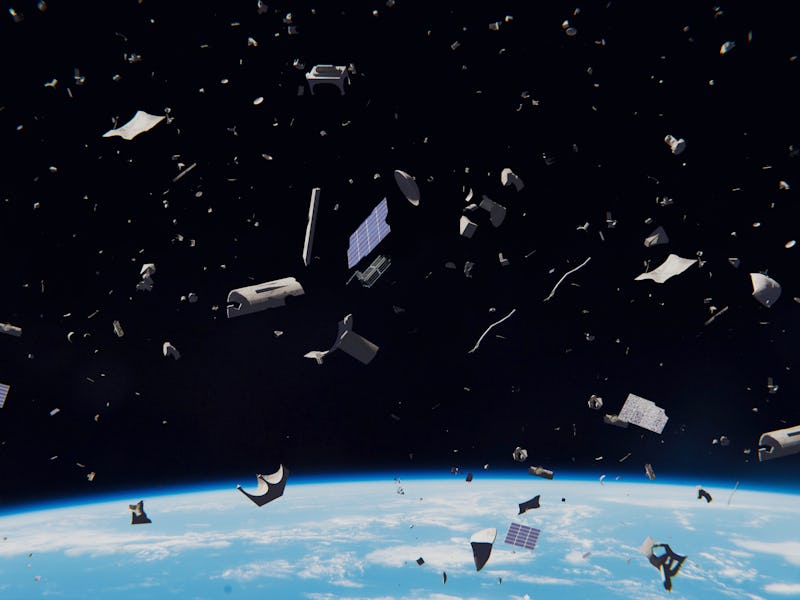Space Force says its new 'Space Fence' will protect us in space
We haven't heard a lot of news from the Space Force since it was founded, but the latest news shows something the military branch developed called the 'Space Fence' is now operational.

It wasn't so long ago that there were running jokes about the idea of the Trump administration creating something it called the "Space Force," but since its founding in December, we haven't heard too much about the military branch. Well, we now have an update for you, as the Space Force has announced something it calls the "Space Fence" is now operational. And no, it's not a space wall.
The Space Force announced at the end of last week that the Space Fence radar system, which is a new radar system that can track objects smaller than 10 centimeters in space, is now fully operational. The radar system is located on Kwajalein Island in the Republic of the Marshall Islands, and it is meant to improve the military's ability to track objects in space like depleted rocket boosters, military satellites and general space debris to protect U.S. assets.
Gen. Jay Raymond, chief of space operations for the U.S. Space Force and commander of U.S. Space Command, said in a statement that this is about protecting America's national security and financial interests.
"Space Fence is revolutionizing the way we view space by providing timely, precise orbital data on objects that threaten both manned and unmanned military and commercial space assets," Raymond said. "Our space capabilities are critical to our national defense and way of life, which is why Space Fence is so important to enhance our ability to identify, characterize and track threats to those systems."
The radar system will track 26,000 orbital objects that we're already aware of and monitor any new objects that are discovered. Considering it can track much smaller objects than we've previously been able to track, that database should grow pretty quickly. We'll soon have a map of just about every object that is orbiting our planet.
The Space Fence was developed by Lockheed Martin, and it's actually been in the works since its nearly $1 billion contract was awarded in 2014. The Pentagon indicated in a report that was released in January that it would finally be ready to go online by the end of February, so the program isn't far off schedule.
Lt. Col. David Tipton, 20th Space Control Squadron commander, said in a statement that space has become littered with debris, and countries are vying for dominance in space.
“Space is now recognized as a congested and contested domain and Space Fence is the next evolution in our efforts to maintain space superiority,” Tipton said.
Now, the idea of a "Space Fence" obviously sounds ridiculous on its face, but there are reasons to believe it could help us avoid collisions with objects in space that could do harm. The European Space Agency estimates there are nearly 1 million objects that are larger than 1 centimeter floating in Earth’s orbit. Of the roughly 5,000 satellites in the Earth’s orbit, less than 2,000 are still operational. This presents a safety concern when we’re trying to navigate our way through space.
Though the idea of a guy like Donald Trump establishing a military branch called the Space Force that then goes on to manage something called the Space Fence is beyond parody, things like space debris do present a real threat, and it is important for the U.S. to remain competitive in space as countries vie influence, control and achievement in these areas.
The Inverse analysis
It's rather odd that an administration that doesn't have an exactly friendly relationship with science has been so adamant about supporting space exploration. It would seem much of this has been pushed by Vice President Mike Pence, who appears to have a personal interest in space exploration. He's said he's hoping we'll get humans back on the Moon by 2024. When so much of what this administration is doing goes against scientific evidence and against the furthering of scientific research, I guess you have you take your wins where you can get them.